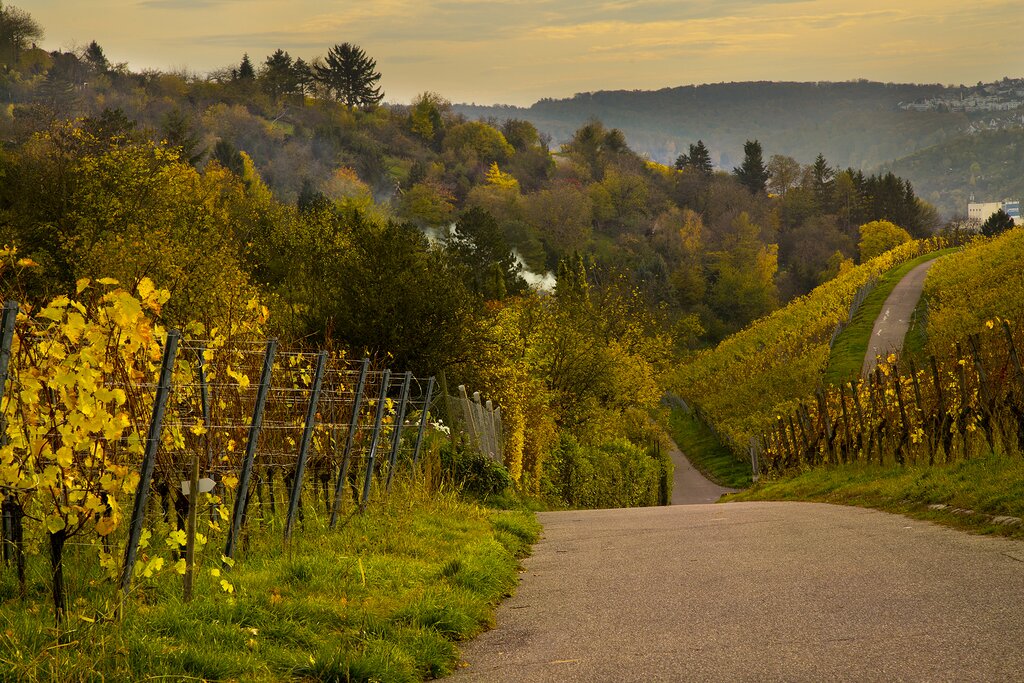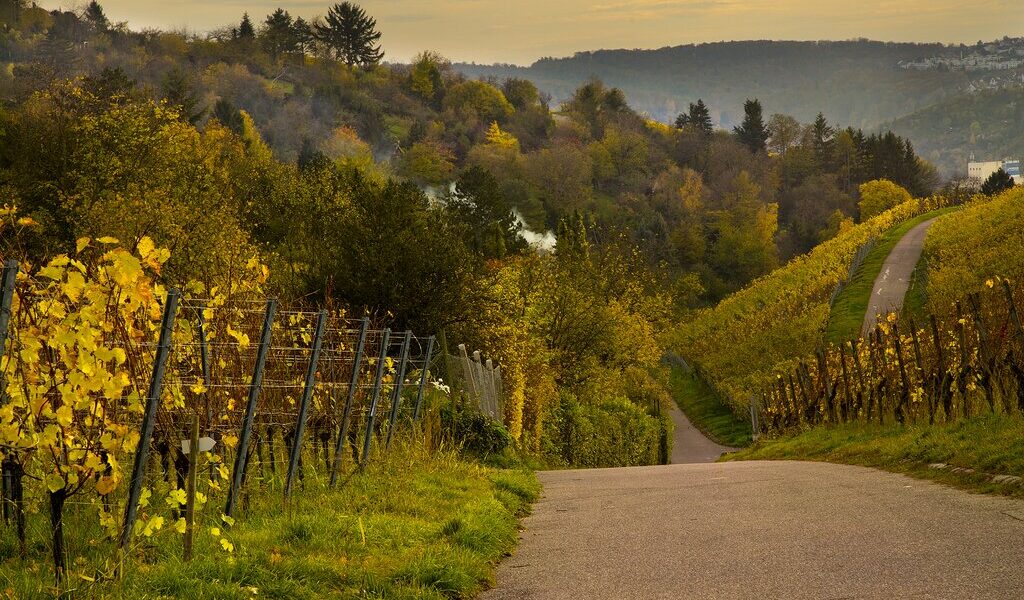
There’s more to early autumn in Germany than liters of beer and oompah bands. September is a lovely time to explore the country’s quieter natural environs once the summer crowds have dissipated, with meandering drives in the Black Forest and 13 wine regions and activities in the Alps before the snow arrives.
Germany in September: A Comprehensive Travel Guide
## Weather in Germany during September
The transition period between the vibrant summer months and the crisp autumn season makes September a truly delightful time to explore the wonders of Germany. During this period, many days remain pleasantly warm and bathed in sunshine, offering a welcome respite from the intense heat and humidity that can characterize July and August. The phenomenon known as *Altweibersommer*, often referred to as “second summer,” graces the landscape with its presence, bringing more days of comfortable weather than those that are characterized by chill and dampness. However, it is prudent to be prepared for both types of weather conditions, as September is a month of transition and variability.
Even as autumn approaches, the days in September still offer a generous amount of daylight, with approximately 12 hours available for engaging in a wide array of outdoor pursuits and activities. This ample daylight provides ample opportunities for sightseeing, hiking, exploring the countryside, and enjoying the many cultural attractions that Germany has to offer.
When it comes to temperature variations, the cities of **Berlin**, the nation’s bustling capital, and **Munich**, the vibrant home of the world-renowned Oktoberfest, experience similar weather patterns. On average, daily high temperatures hover around 66°F (19°C), while daily low temperatures dip to approximately 52°F (11°C). In contrast, the city of **Frankfurt**, nestled in the southwestern part of the country, tends to be slightly warmer, with average daily high and low temperatures reaching 70°F (21°C) and 54°F (12°C), respectively.
For those venturing into the majestic southern **Bavarian Alps**, including destinations like Garmisch-Partenkirchen, it is important to note that temperatures will likely be cooler due to the higher elevations. This is especially true in close proximity to **Zugspitze**, Germany’s highest peak, which stands tall at an impressive 9,718 feet (2,962 m) above sea level. Meanwhile, the northern coastal regions, particularly those near **Hamburg**, are likely to benefit from refreshing sea breezes, creating ideal conditions for late-summer beach visits.
When packing for a trip to Germany in September, the key is to bring versatile layers that can easily accommodate the fluctuations between warm days and cooler evenings. A pair of comfortable and durable walking shoes is an absolute must, as you’ll likely be doing a lot of walking and exploring. It is also wise to pack a reliable rain jacket and a sturdy umbrella to prepare for the possibility of wet days. Don’t forget to bring sunscreen for sightseeing and outdoor adventures, as the sun can still be quite strong during this time of year. And if you plan on taking advantage of the beaches and lakes that are still inviting for swimming, be sure to pack a swimsuit.
## Crowds and Costs in September
Despite the fact that September falls within the shoulder season, it remains a popular time to visit Germany, primarily due to the numerous festivals that take place throughout the month. Many of these festivals revolve around the celebration of beer and wine, drawing visitors from far and wide. However, on the whole, the country tends to be less crowded and less expensive than during the peak summer months, resulting in lower costs for accommodations and attractions.
It is worth noting that this general trend does not apply to **Munich** during the mid-month period, when an astounding six million visitors converge on the city for the world’s largest beer festival, Oktoberfest. If Oktoberfest is an integral part of your travel itinerary, it is absolutely essential to make your travel bookings well in advance to secure accommodations and transportation. Alternatively, if you prefer to avoid the overwhelming crowds and mayhem of Oktoberfest, you can opt for smaller-scale beer festivals that take place in other cities, such as **Stuttgart** and **Berlin**.
## Where to Go in Germany in September
The pleasant weather that prevails throughout Germany in September opens up a plethora of itinerary options and modes of transportation. A fantastic place to kick off your German adventure is the vibrant capital city of **Berlin**, which now boasts the sleek and modern Berlin-Brandenburg Airport. Without the throngs of tourists that are common during the summer months, you can explore the city’s historical monuments and trendy neighborhoods with more space and ease.
From **Berlin**, you can easily take day trips to nearby historic cities by train or rent a car and explore the thousands of inland lakes that dot the city’s outskirts. The water temperatures in these lakes are typically ideal for swimming during this time of year.
The southern and southwestern regions of Germany are also perfectly suited for road trips, particularly if you wish to avoid the boisterous beer-swilling crowds in **Munich**. As the leaves begin to change color in September, the landscape transforms into a tapestry of vibrant hues, making for incredibly rewarding scenic drives. Consider driving a section of the renowned **Romantic Road**, stopping at picturesque medieval villages and enchanting fairy-tale castles along the way. One such castle is King Ludwig II’s iconic **Neuschwanstein Castle**, which served as the inspiration for Disney’s “Sleeping Beauty” castle. You can also spend a few days hiking along snow-free trails, taking in the breathtaking views of the alpine lakes and majestic mountains.
Another scenic drive that is well worth considering is the **German Wine Road**, which begins in the charming town of **Bockenheim**, located near **Frankfurt**. The road winds its way through stunning wine country towards the French border, offering numerous opportunities to stop at tasting rooms and produce stands along the way. Keep an eye out for wine and harvest festivals that take place throughout the month, especially in **Dürkheimer**, which is home to the world’s biggest wine festival. A picturesque base for exploring this area is the spa town of **Baden-Baden**, renowned for its thermal baths and easy access to more castles in the region, such as **Hohenbaden Castle**.
Alternatively, you can head to the southwestern corner of Germany, which is typically the warmest part of the country, and spend a few days in the university town of **Freiburg**. From **Freiburg**, you’ll be perfectly positioned to explore the heart of the enchanting **Black Forest**.
## What to Do in Germany in September
While **Munich** takes center stage in late September due to Oktoberfest, those who wish to experience one of Europe’s top cultural capitals can explore the city in the first half of the month with relative peace and tranquility. Start your day by grabbing a coffee and securing a front-row seat to watch the daily **Glockenspiel** performance on **Marienplatz**, where the cuckoo clock show unfolds. Afterward, head to the 200-year-old open-air market, **Viktualienmarkt**, where you can stroll through the stalls and sample local delicacies. The market’s outdoor garden is a fantastic spot to pull up a bench and enjoy a refreshing *Radler* while soaking in the late summer weather. You can also wander around **Munich’s** trendy neighborhoods, such as the **Glockenbachviertel**, which is brimming with cafes, bars, and retail boutiques.
Once Oktoberfest kicks into high gear, you may want to consider escaping the city and heading to the **Bavarian Alps**. Take a train to **Füssen**, which is within walking distance of the Austrian border, and immerse yourself in the area’s rich history of violin and lute making. You can also hike to two of the most famous castles in Germany or take a cable car ride for panoramic views of the surrounding landscape. Mountain biking trails and rentals are plentiful in this area, offering opportunities for outdoor adventures. A few hours west lies Germany’s largest lake, **Lake Constance**, which borders Germany, Austria, and Switzerland. There are numerous attractive towns to stay in for a few days, where you can enjoy swimming, boating, and windsurfing.
Germany offers an abundance of outdoor attractions, far too many to mention individually. However, **Saxon Switzerland National Park** stands out as an exemplary national park that deserves to be experienced. This park attracts adventurers from all over the world who come to hike and climb its unique sandstone rock formations.
## Events in Germany in September
* **International Literature Festival, Berlin:** This prestigious festival is one of the world’s most important literary events. For 11 days in September, theaters, museums, and concert halls across Berlin host readings, discussions, and workshops.
* **Oktoberfest, Munich:** This iconic event is a must-see for beer enthusiasts. Beginning in mid-September and lasting until early October, Oktoberfest is Germany’s most famous festival, dating back to 1810. Gigantic tents serve glass liters of beer and hearty German food, accompanied by live music and other folk-related festivities. It is crucial to plan your visit well in advance.
* **Canstatter Volksfest, Stuttgart:** Starting in late September, this two-week event is the world’s second-largest beer festival. It offers a less-touristy alternative to Munich’s Oktoberfest, with fairground attractions, rides, and even a French village with food stands.
* **Berlin Beer Week, Berlin:** This festival celebrates Berlin’s status as a mecca for craft beers. Taking place in early September, it has become Germany’s largest craft beer festival.
* **Rheingau Wine Festival, Frankfurt:** In early September, **Frankfurt** hosts a wine festival featuring more than six hundred wines from the Rheingau region. The festival takes place in the city’s pedestrian shopping area, creating what is known as the longest wine bar in the world.
* **Wurstmarkt, Bad Dürkheim:** The spa town of **Bad Dürkheim** in southwest Germany is home to the world’s biggest wine festival. The festival draws over 600,000 visitors each year. Festivities take place during the second and third weekends of September.
B-909

